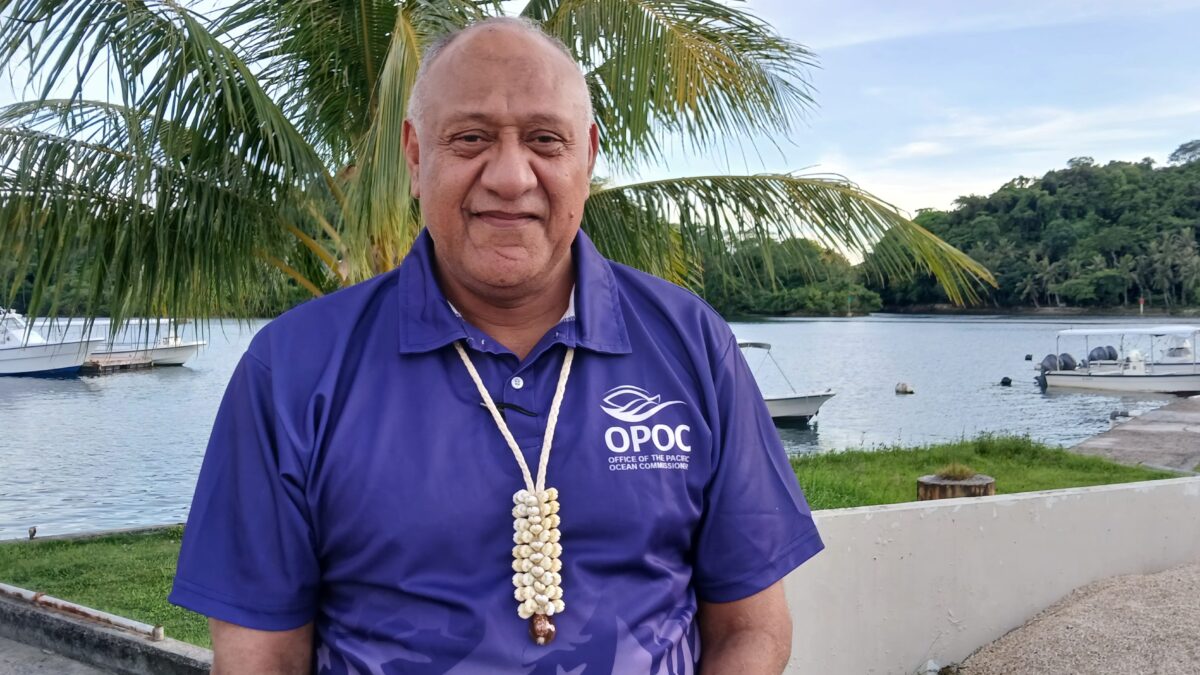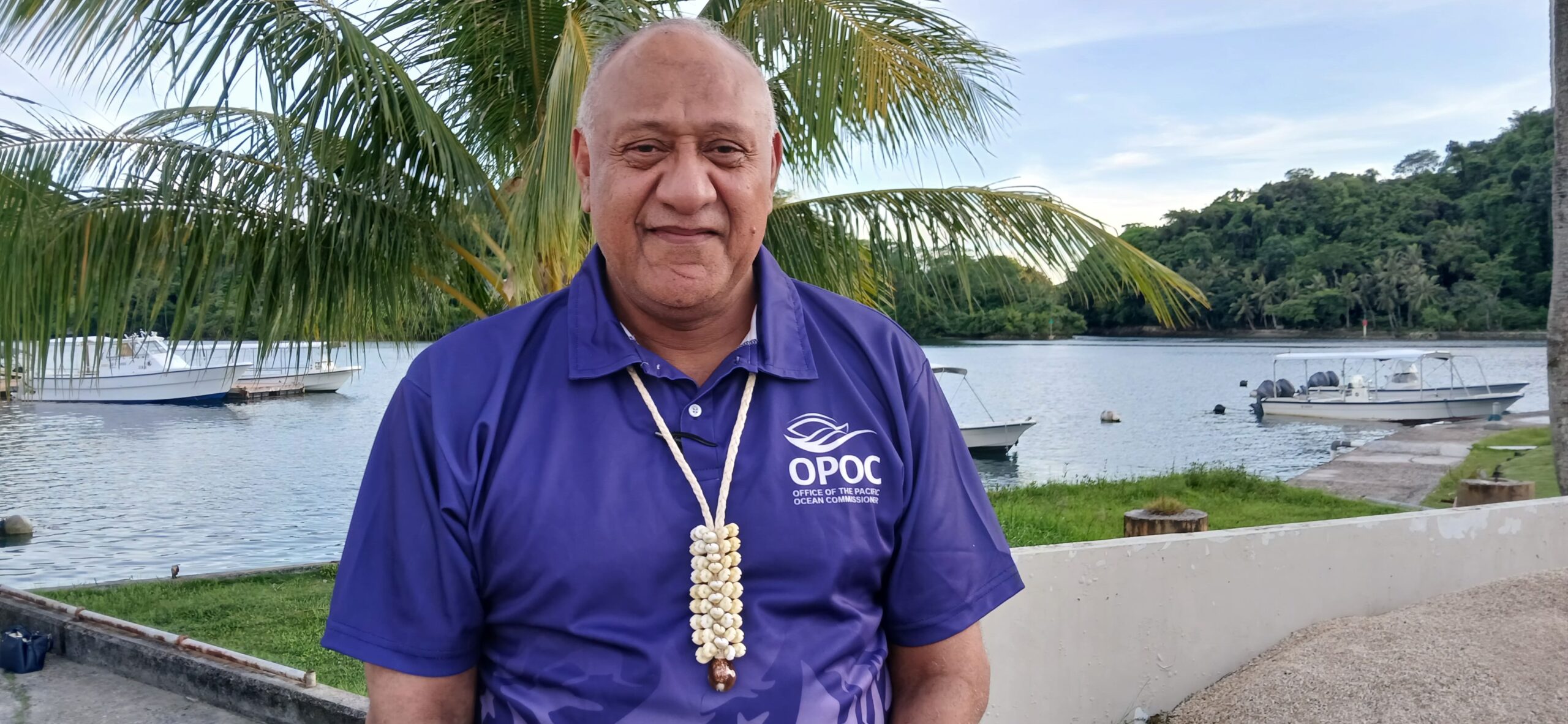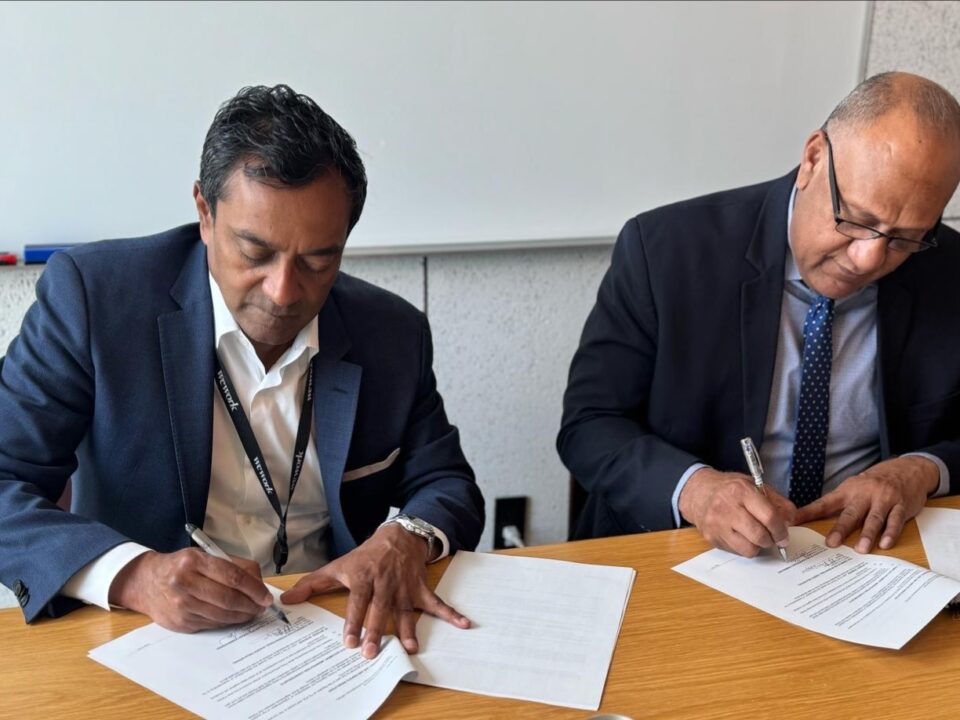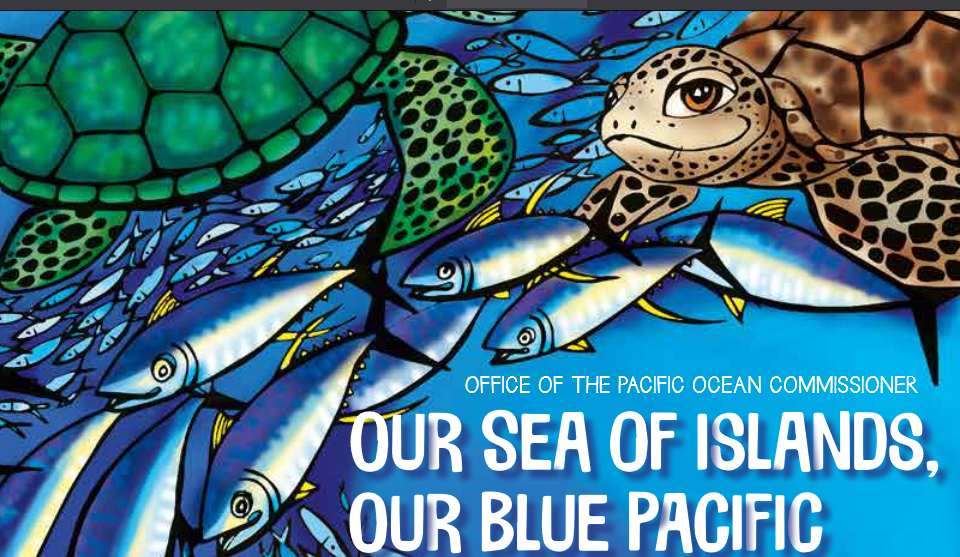
By Dr Filimon Manoni, Pacific Ocean Commissioner
Earlier this year, like most from the international ocean community, I was in Europe attending key ocean meetings.
That was after 20 hours of flying I found myself looking at the Mediterranean Sea.
I grew up on an atoll off the coast of Bougainville in Papua New Guinea. Most of my life, I have lived in the Pacific, in the Republic of the Marshall Islands, the Solomon Islands and Fiji, and have recently made Palau my new home. Pacific islands are as diverse as they are numerous, but we have one thing in common: the Ocean.
That body of water in front of me had an unsettling familiarity. While much colder than the water of Koror and with a different smell, taste, and sound, it brings the reassuring comfort that the Pacific Ocean has provided me. It reminds me that indeed the Ocean is the great connector.
I was in the Mediterranean to represent the Blue Pacific Continent at three international ocean events as we charted our course to the third UN Ocean Conference in Nice, France.
Prioritizing Ocean Health as Pacific Ocean Commissioner
With its vast blue expanse of over 42 million square kilometers, the Blue Pacific Continent is home to a diverse array of marine life, cultures, and ecosystems.
Over centuries, the Pacific Ocean has been a highway connecting communities and ecosystems across the ocean. Unfortunately, this connectivity which made us who we are today is also the vehicle through which many pressures propagate.
As the newly appointed Pacific Ocean Commissioner, I am compelled to address the pressing issues facing my home, the world’s largest and most vital oceanic expanse. In doing so, I want to also emphasize the many opportunities we have and capitalize on the many strengths of our People.
The objective is to nurse the ocean back to health and to maintain its resilience and productivity. To achieve this, I see five global priority challenges to tackle.
First, we must address climate change. It remains the single greatest threat facing our Blue Pacific Continent. Rising sea temperatures, ocean acidification, and sea level rise are already taking a toll on marine ecosystems and coastal communities. Urgent action is needed to reduce greenhouse gas emissions and mitigate the impacts of climate change on the Pacific Ocean.
Second, we must tackle overextraction and overexploitation of marine resources. Many fish stocks are already, at best, overexploited, at worst depleted. If current trends continue, there could be serious consequences for both marine ecosystems and the millions of people who depend on fisheries for their livelihoods. Sustainable fisheries management is essential to ensure the long-term health and productivity of the Pacific Ocean.
Third, we must reduce marine pollution, including plastic pollution. Every year, at least 16 millions of tons of plastic waste enter the ocean, harming marine life and ecosystems. To address this, we need to reduce plastic production and consumption, improve waste management systems, and promote circular economy solutions that also work for island contexts. The current negotiations for international legally binding treaty on plastic pollution offer great promises. Let us not miss this opportunity. We must also actively tackle other forms of pollution, including from urban and industrial development run-offs, noise pollution from ships, as well as light pollution from tourism development.
Fourth, we must protect and restore marine habitats. Habitat destruction, including from coastal development, run-offs, and extractive activities, is also a major threat. Protecting and restoring these ecosystems can help enhance resilience to climate change, sustain the livelihoods of communities, and ensure the perpetuation of cultural practices. Maintaining a biodiverse marine environment can also unlock future medical solutions and innovation.
Fifth, we need sustainable ocean-based economic sectors. From tourism to shipping to renewable energy, the ocean can provide numerous economic opportunities. However, these industries must be managed sustainably to avoid depleting resources or causing environmental or social harms. We need to be cautious of false promises. We need to ensure that ocean-based sectors are for the benefit of our people.
How do we tackle these issues?
These five categories must not be considered in silo. As they are transboundary and exacerbate each other, they need to be tackled all at once and at all levels. When adopting the United Nations Convention on the Law of the Sea (UNCLOS), the international community recognized that the problems of ocean space are closely interrelated and need to be considered as a whole.
We must enhance international cooperation and governance of ocean-based activities. Strengthening international frameworks such as the international law of the sea and the Paris Agreement can help ensure that our ocean and its ecosystems remain healthy, productive and resilient.
We must also emphasize the role of traditional knowledge systems. International law, including the recently adopted Agreement on biodiversity in areas beyond national jurisdiction (BBNJ Agreement) has recognized the complementarity between science and traditional knowledge systems. Indigenous Peoples and local communities who hold such traditional knowledge must be recognized, respected, and protected. As holders of traditional knowledge, they also act as moral compass to help us rethink our relationship to Nature and to ourselves, as individuals and as a collective.
We must understand the Ocean. The United Nations Decade on Ocean Science for Sustainable Development holds immense promise in that regard. The Decade aims to foster a holistic approach to ocean science that transcends traditional boundaries. Its success depends on the commitment and collaboration of all stakeholders, as well as the provision of capacity building and knowledge sharing, which must be harnessed to facilitate the sharing of knowledge and inspire the next generation of ocean practitioners. By working together, we can harness collective knowledge to act as ocean stewards and preserve our blue planet for future generations.
This year 2024 has been a critical year for our ocean. My priorities included promoting sustainable ocean management practices, strengthened regional cooperation, and advocate for the protection of the Pacific Ocean and its resources.
We need to chart a course toward a healthier, more resilient ocean for all. We need to set Sail now!

Pacific Ocean Commissioner Dr Filimon Manoni reflecting on his ocean journey



